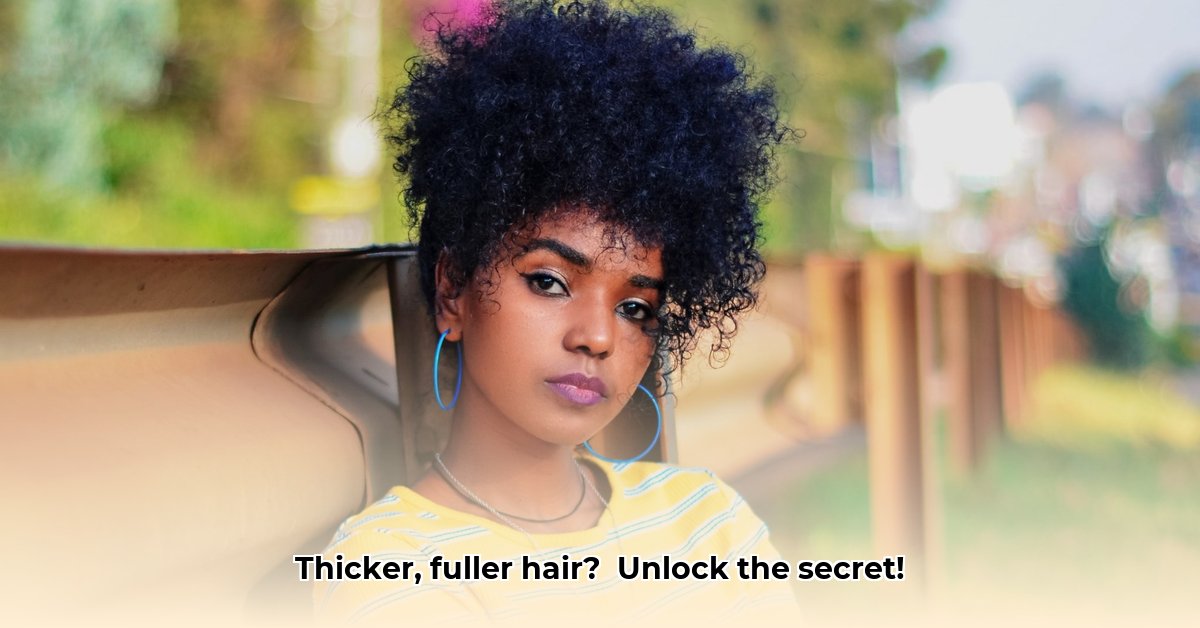
Potential Benefits of Ylang Ylang Essential Oil for Hair
Ylang ylang essential oil, derived from the Cananga odorata tree, has a long history of use in traditional beauty practices, particularly for hair care. Many believe it promotes hair growth and improves scalp health, but is this just anecdotal evidence or is there scientific backing?
Stimulating Hair Growth & Scalp Health
The alluring fragrance of ylang ylang isn't the only enticing aspect. Its purported benefits stem from potential actions such as stimulating sebum production (your scalp's natural oil), leading to softer, shinier hair. It's also suggested that the oil may improve scalp blood circulation, potentially delivering essential nutrients to hair follicles for stronger, fuller-looking hair. Think of it like providing a richer soil for your hair to thrive in.
However, a crucial caveat: while these claims are prevalent, robust scientific evidence confirming these effects remains limited. Large-scale, well-designed clinical trials are necessary to definitively confirm ylang ylang's impact on hair growth and overall scalp health.
Understanding the Potential Mechanisms
The promising effects are possibly linked to ylang ylang's chemical composition. Certain compounds within the oil might encourage hair growth or improve scalp health, but the exact mechanisms require further investigation. It's a complex interplay of chemical interactions that researchers are still working to fully understand. We're essentially piecing together a complex puzzle, with some pieces in place, but many still missing.
This lack of robust evidence means we should approach claims with realistic expectations, focusing on the potential rather than guaranteed results.
How to Use Ylang Ylang Oil for Hair: A Step-by-Step Guide
Remember: Always dilute ylang ylang essential oil before applying it to your scalp. Pure essential oils are highly concentrated and risk skin irritation.
Dilution: Mix 2-3 drops of ylang ylang essential oil with 1 tablespoon of a carrier oil (such as jojoba, coconut, or sweet almond). This dilution ratio is generally safe for most individuals.
Scalp Massage: Gently massage the diluted oil into your scalp, focusing on areas where you desire improved hair growth or scalp health. A gentle massage can improve blood flow.
Optional Hair Mask: For a deeper treatment, incorporate the diluted oil into a hair mask, combining it with other beneficial ingredients like honey or avocado. Leave it on for 15-30 minutes before rinsing thoroughly.
Application Frequency: Begin with 1-2 applications per week and adjust based on your hair and scalp's response. Always prioritize gentle treatment.
Rinsing: Rinse your hair thoroughly with a mild, sulfate-free shampoo and follow up with your regular conditioner.
Precautions and Potential Side Effects
While generally considered safe when used correctly, ylang ylang essential oil may cause allergic reactions in some individuals. Before applying it to your entire scalp, conduct a patch test: apply a small amount to an inconspicuous area of skin and monitor for any reactions (redness, itching, swelling) for 24 hours.
Pregnant or breastfeeding individuals should consult their healthcare provider before using ylang ylang oil due to limited research on its effects during these periods. Similarly, those taking medication should discuss the use of ylang ylang with their doctor or pharmacist, as some essential oils can interact with certain medications.
Scientific Evidence and Limitations: A Realistic Perspective
It's crucial to approach the benefits of ylang ylang oil with cautious optimism. While anecdotal evidence suggests potential benefits for hair growth and scalp health, there is a shortage of rigorous clinical trials to support these claims. More research is needed to establish definitive conclusions.
Conclusion: A Balanced Approach to Hair Care
Ylang ylang essential oil offers a pleasant aroma and boasts a long history of use in hair care. While potential benefits are intriguing, conclusive scientific evidence remains limited. Always prioritize safe usage, proper dilution, and a patch test. If you have any concerns, consult a healthcare professional. Remember, the journey to healthy hair is unique, and patience is key. Prioritize your wellbeing and use ylang ylang as a supplementary treatment rather than the primary solution.